The origins of dentistry in England trace back through centuries, revealing a captivating narrative of evolving healthcare practices.
Delving into the inception of dentistry in this historical context unveils a fascinating journey from rudimentary methods to the sophisticated discipline it is today.
The roots of dental care in England can be discerned in the Anglo-Saxon period, marked by monks and barbers performing basic procedures.
As centuries unfolded, the Renaissance ushered in scientific approaches, the Enlightenment embraced professionalism, and the Industrial Revolution catalyzed organizational shifts.
This introduction sets the stage for a nuanced exploration of when dentistry commenced in England, exploring its multifaceted evolution across diverse historical epochs.
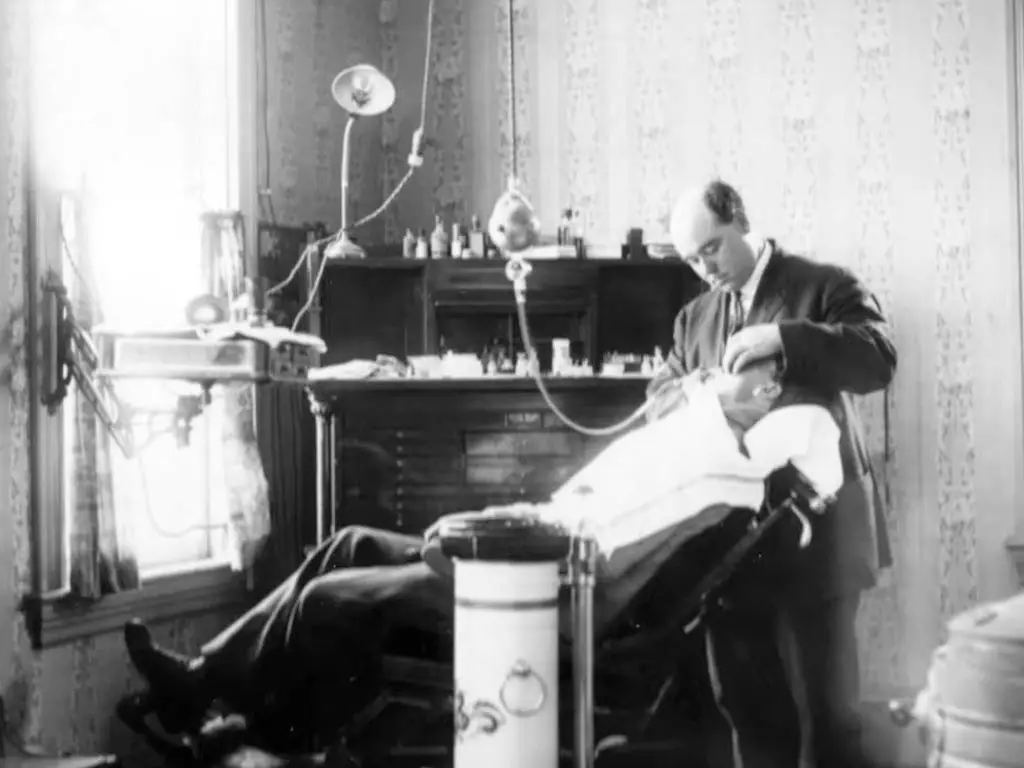
What Is Dentistry?
Dentistry is a specialized branch of medicine dedicated to the diagnosis, prevention, and treatment of diseases and disorders affecting the teeth, gums, and oral cavity.
Dentists, and professionals in this field, focus on maintaining oral health through various interventions, including cleanings, restorative procedures, and oral surgeries.
Beyond addressing existing issues, dentistry emphasizes preventive care, and promoting good oral hygiene practices to avert potential problems.
As an integral component of overall healthcare, dentistry plays a crucial role in ensuring the well-being of individuals by preserving the functionality and aesthetics of the oral region.
When Did Dentistry Start in England?
The roots of dentistry in England extend deep into history, reflecting a journey marked by primitive practices, gradual advancements, and eventual professionalization.
Understanding the inception of dentistry in England involves exploring various historical periods that shaped the evolution of oral healthcare practices on the island.
From the rudimentary methods of the Middle Ages to the sophisticated and specialized approaches of the modern age, this exploration delves into the timeline of when dentistry started to take shape in England.
Anglo-Saxon Period (5th to 11th centuries)
During the Anglo-Saxon period, which spanned from the 5th to the 11th centuries, evidence emerged of early dental practices in England.
Monks and barbers played key roles in performing basic dental procedures, including tooth extractions.
Simple instruments such as forceps, scalpels, and probes, crafted from materials like iron or bronze, were employed.
Herbal remedies like sage, mint, and cloves were used to alleviate pain and inflammation. However, the understanding of dental causes and prevention was limited, leading to widespread dental issues.
Renaissance (14th to 17th centuries)
The Renaissance era witnessed a shift towards more scientific and artistic approaches to dentistry in England.
Influenced by continental European discoveries, dentists began studying the anatomy and physiology of teeth and jaws.
Innovative techniques and materials, such as gold and silver wires for binding loose teeth and carved ivory or bone for artificial teeth, emerged.
Experimental dental implants, often utilizing animal or human teeth, marked this period. Despite advancements, dental care remained expensive and inaccessible for many, with folk remedies and self-treatment still prevalent.
Enlightenment (18th century)
The Enlightenment period marked a turning point in dentistry, characterized by increased professionalism and scientific rigor.
Dentists engaged in research published books, and formed societies and schools. New instruments, materials (including porcelain and vulcanite), and pain relief methods like nitrous oxide and ether were introduced.
However, the profession remained largely unregulated, allowing the presence of quacks and charlatans who exploited public fear and ignorance.
Industrial Revolution (19th century)
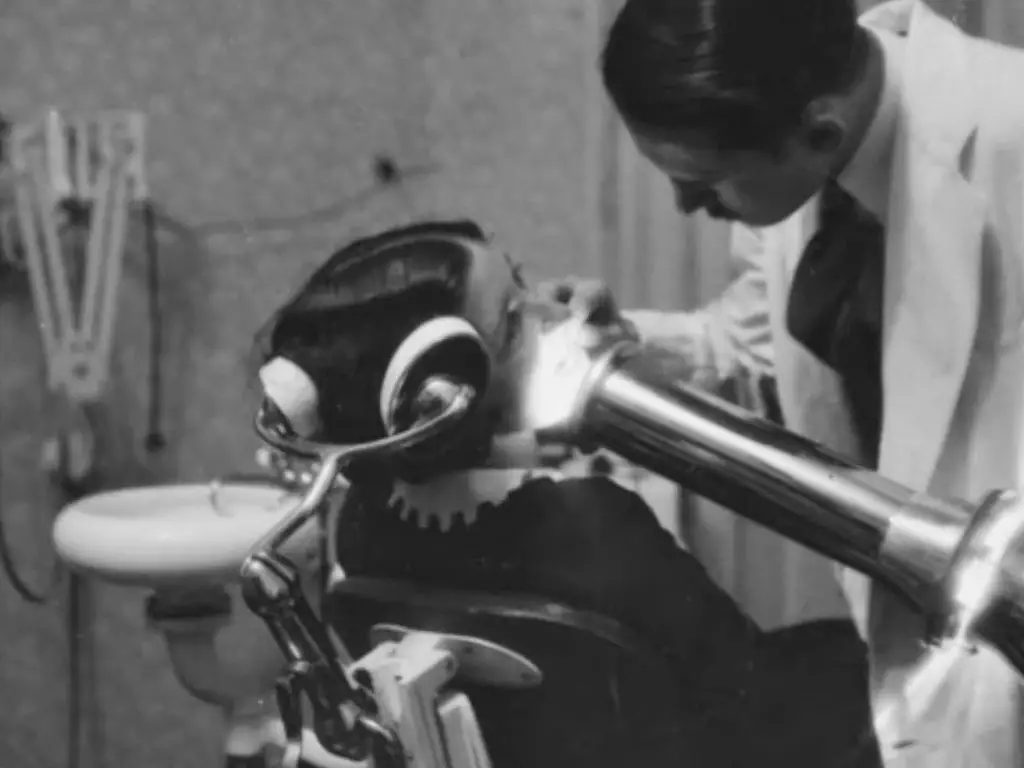
The societal changes brought about by the Industrial Revolution significantly impacted the development of dentistry in England.
Urbanization, population growth, and industrialization increased the demand for dental care, while technological advances allowed dentists to access more information and resources.
Dentistry became more organized, with the establishment of associations, journals, and colleges.
Innovations such as dental X-rays, anesthesia, and amalgam fillings enhanced the quality and efficiency of dental care.
Modern Age (20th to 21st centuries)
The modern age witnessed a continuation and acceleration of trends from previous centuries.
Dentistry in England has become more advanced, diverse, and accessible. Dentists incorporated knowledge from fields like microbiology, immunology, genetics, and pharmacology.
New technologies and techniques, such as lasers, implants, and braces, were adopted. The profession diversified into specialized fields to cater to various patient needs.
Increased availability and affordability were achieved through both public and private practices.
How Did They Brush Their Teeth in the 1700s?
In the 1700s, dental care was a far cry from the modern practices we know today. The methods employed for brushing teeth during this period were rudimentary, and oral hygiene was not as advanced as it is in contemporary society.
Here is the detail of how did people brush their teeth in the 1700s:
Toothbrushes
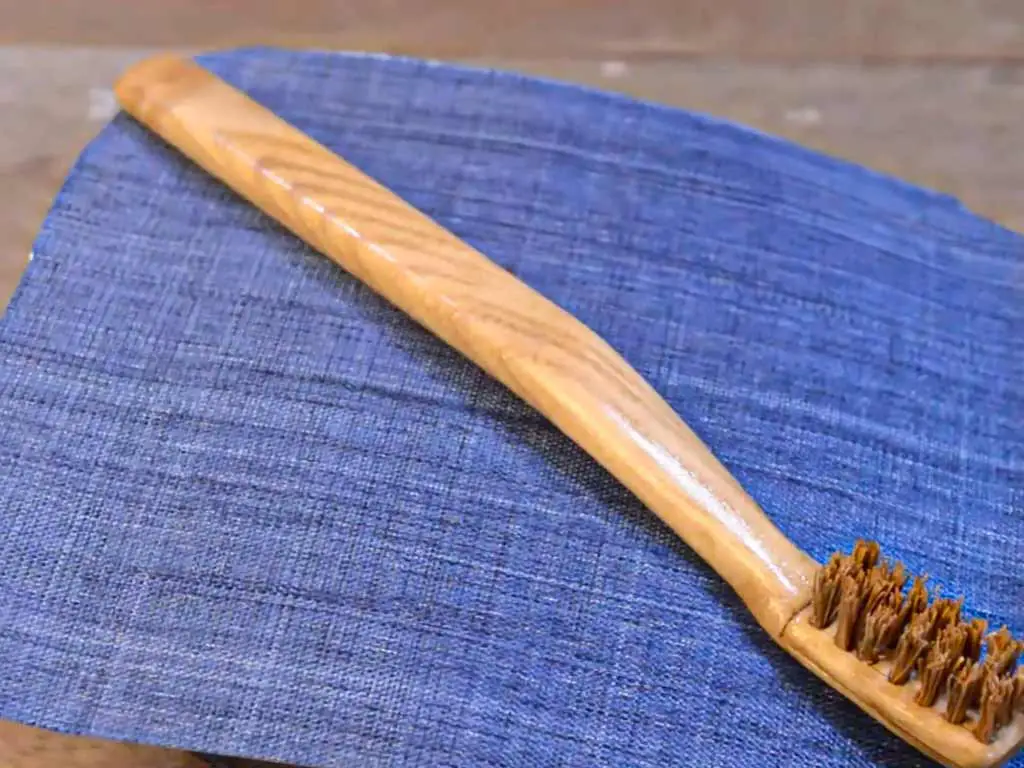
In the 1700s, toothbrushes were quite different from the ones we use today. Handles were typically crafted from materials such as bone, wood, or ivory.
The bristles, crucial for mechanically cleaning teeth, were made from the hairs of animals like boars.
These early toothbrushes were a luxury primarily available to the wealthier classes, as the general population often relied on alternative methods for dental care.
Tooth Powders
Tooth powders were a popular dental hygiene product during the 1700s. These powders were composed of various substances, including crushed shells, chalk, or pulverized charcoal.
The gritty texture of these powders helped to scrub away plaque and debris. Some formulations incorporated herbs and flavorings not just for dental hygiene but also to combat bad breath, offering a semblance of freshness.
Chew Sticks
In regions where toothbrushes were scarce, people turned to chew sticks as an alternative.
These sticks were typically obtained from certain tree branches. Users would chew on one end until it frayed, effectively creating a rudimentary brush.
The frayed end of the stick was then used to clean the teeth. Chew sticks were more commonly used in cultures where the concept of a dedicated toothbrush was not widespread.
Mouthwashes
While not as prevalent as other methods, some individuals in the 1700s employed mouthwashes or rinses for oral hygiene.
These concoctions might include mixtures of water, vinegar, or other astringents believed to cleanse the mouth.
Though not as effective as modern mouthwashes, these solutions were used to freshen breath and provide a sense of cleanliness.
How Did They Brush Their Teeth in the 1800s?
In the 1800s, dental care saw gradual improvements compared to earlier centuries, but practices were still a far cry from the sophisticated routines we follow today.
During this period, dental hygiene evolved, incorporating new materials and methods into oral care.
Let’s delve into how did people brush their teeth in the 1800s:
Toothbrushes
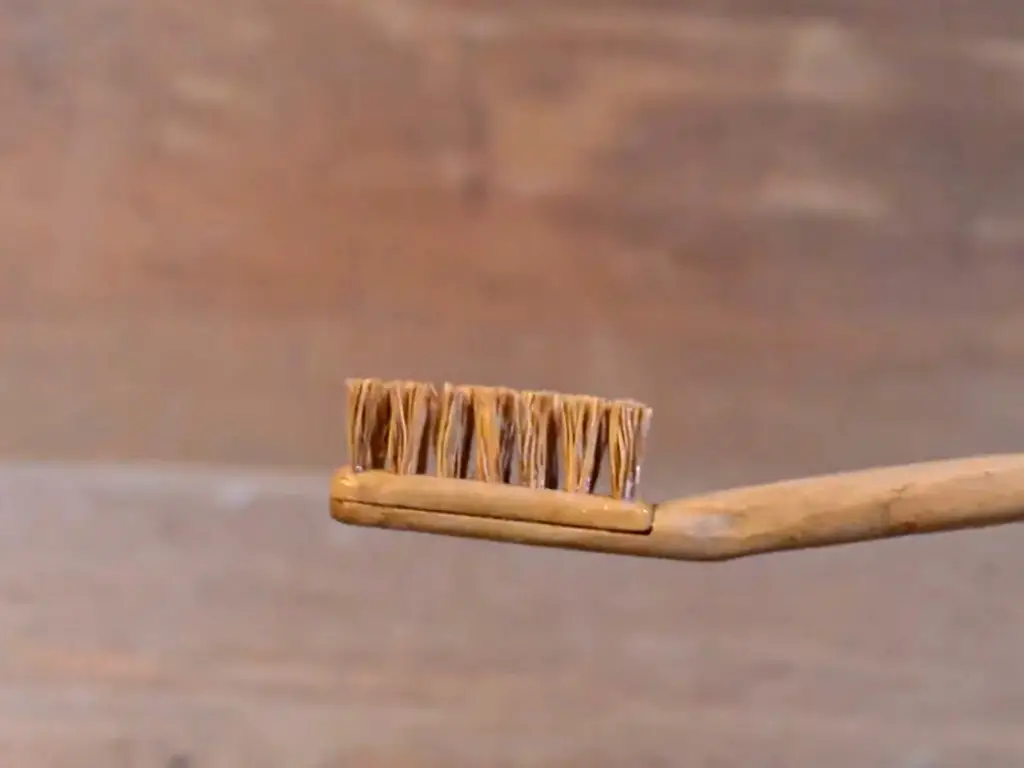
In the 1800s, toothbrushes underwent notable changes. Handles were crafted from materials like bone or wood, reflecting a move towards more durable and aesthetically pleasing designs.
The bristles, which were still predominantly made from animal hairs, saw a shift from boar to horsehair.
This period marked an expansion in toothbrush availability, making them more accessible to the growing middle class and contributing to increased awareness of dental hygiene.
Tooth Powders and Pastes
Tooth powders persisted as a popular dental hygiene product, but the 1800s witnessed a transition to toothpaste.
Initially sold in jars or pots, toothpaste formulations incorporated a variety of ingredients, including chalk, soap, and ground charcoal.
This shift towards toothpaste marked a departure from earlier powders, offering users a more convenient and user-friendly option for maintaining oral hygiene.
Chew Sticks and Miswak
In certain regions and cultures, chew sticks continued to be used in the 1800s. Additionally, the miswak, a teeth-cleaning twig from the Salvadora persica tree, gained popularity in some parts of the world.
Users would chew on the twig to fray one end and then use it to brush their teeth. These traditional methods persisted alongside emerging innovations in dental care.
Flavored Toothpaste
As the 19th century progressed, flavored toothpaste gained popularity. Mint, in particular, became a common flavoring agent, contributing not only to dental hygiene but also to a more pleasant brushing experience and fresher breath.
The introduction of flavored toothpaste marked a departure from earlier formulations, where taste and sensory appeal were not primary considerations in oral care products.
Developed Bristles
While animal hairs remained the primary material for toothbrush bristles, efforts were made in the 1800s to refine and improve their quality.
The use of softer bristles became more common, addressing concerns about the potential harshness of earlier designs.
As dental awareness increased, individuals sought more comfortable and effective ways to care for their teeth, laying the foundation for future innovations.
What Characterizes the Development of Dentistry in the Modern Age in England?
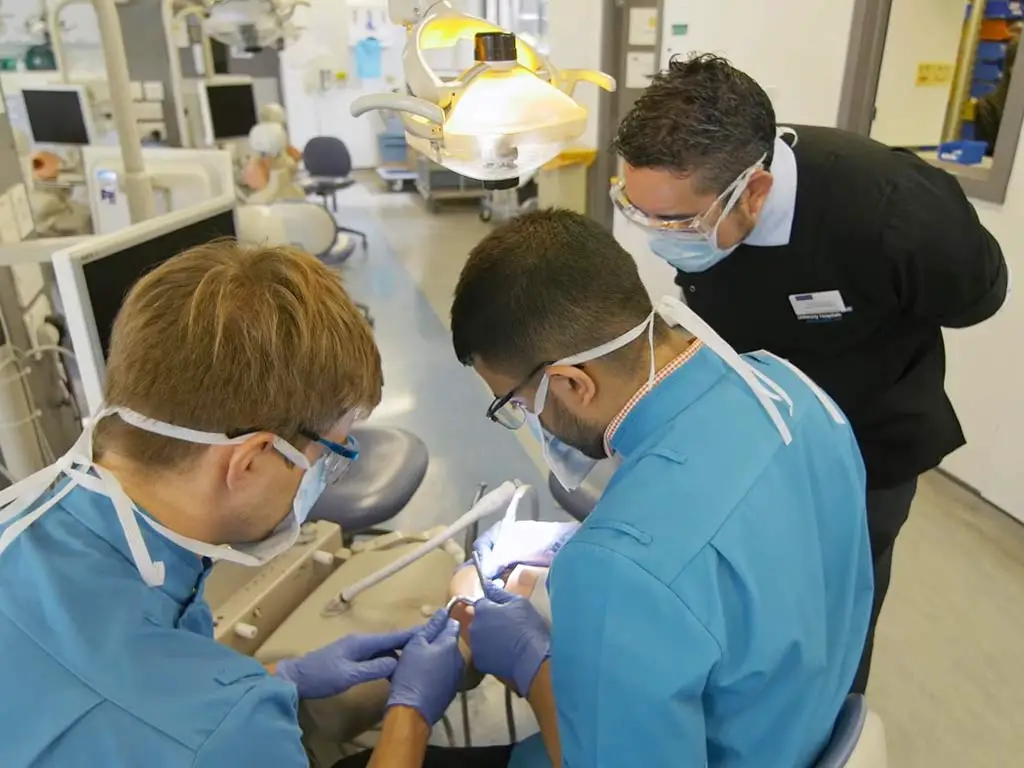
In the modern age, dentistry in England stands at the intersection of various scientific disciplines.
The incorporation of microbiology, immunology, genetics, and pharmacology into dental practice has deepened our understanding of the underlying causes of oral health issues.
This integrated knowledge allows for more precise diagnostics and targeted treatments, fostering a comprehensive approach to dental care.
Technological Advancements
Revolutionary technological strides have reshaped dental procedures. Advanced tools such as lasers, digital imaging systems, and computer-aided design have elevated diagnostics, treatment planning, and execution.
Dental implants, coupled with sophisticated esthetic restorations, exemplify how technology has not only improved the durability of interventions but has also enhanced the aesthetics of dental outcomes.
Specialization and Diversification
The modern dental landscape in England embraces specialization to address the diverse needs of patients.
Cosmetic dentistry focuses on enhancing smiles, pediatric dentistry tailors care for children, and geriatric dentistry addresses the distinct oral health challenges of the elderly.
This diversification ensures that patients receive tailored and expert care based on their unique requirements.
Increased Accessibility and Affordability
Dentistry’s evolution in the modern age emphasizes broad accessibility. Dentists in England work across public and private sectors, contributing to a more inclusive healthcare environment.
Flexible payment plans and a range of insurance options further democratize access to quality dental services, reducing barriers to oral health for a larger segment of the population.
Patient-Centric Approach
Contemporary dentistry places a premium on patient-centric care. Dentists collaborate closely with individuals, fostering a two-way dialogue to understand specific needs, preferences, and oral health goals.
This personalized approach not only enhances the overall patient experience but also encourages proactive preventive measures, promoting long-term oral health.
Ongoing Research and Education
The commitment to excellence in modern dentistry is reflected in the emphasis on ongoing research and education.
Dental professionals actively engage in continuous learning to stay abreast of emerging technologies, techniques, and scientific discoveries.
This dedication ensures that practitioners in England are well-equipped to provide cutting-edge and evidence-based care, fostering a culture of continuous improvement within the field.
FAQs
What is the oldest medical profession in the world?
Dentistry is often considered the oldest medical profession, with evidence of dental work dating back to ancient civilizations such as the Indus Valley and ancient Egypt.
When did dentistry become a thing?
Dentistry has ancient roots, with evidence of dental procedures found in various ancient cultures.
The Ebers Papyrus from Egypt (c. 1700 B.C.) contains references to dental treatments.
Did Victorians brush their teeth?
Dental hygiene in the Victorian era (1837-1901) varied. While some Victorians practiced dental care using tooth powders or homemade solutions, oral hygiene was not as advanced as it is today.
Did they brush their teeth in the 1700s?
In the 1700s, dental care was rudimentary. People used toothbrushes with bristles made from animal hair and various tooth powders.
However, dental hygiene practices were not as widespread or standardized as they are now.
Did they brush their teeth in the 1800s?
Dental hygiene in the 1800s improved compared to earlier centuries. Toothbrushes with nylon bristles were introduced in the mid-19th century.
Toothpaste, initially in powder form, became more common. However, dental care was still evolving, and modern practices took time to develop.
To Recap
The trajectory of dentistry in England unfolds as a rich tapestry, woven across centuries of innovation and adaptation.
From humble beginnings in the Anglo-Saxon period to the sophisticated practices of the modern age, dentistry has evolved, reflecting societal, scientific, and professional advancements.
The journey encompasses periods of rudimentary care, scientific renaissance, professional enlightenment, and industrial transformation.
As the profession continually refined its techniques, embraced scientific rigor, and responded to societal needs, it solidified its place in modern healthcare.
Exploring when dentistry began in England not only unveils historical milestones but also underscores its vital role in promoting oral health, offering a testament to the enduring resilience and progress of this essential medical discipline.

Leave a Reply